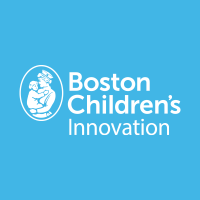
BCH Innovation News
@bch_innovation
Pediatric science and innovation news | @BostonChildrens | Social Media Disclaimer: bit.ly/1JCbBKV
ID: 137757247
http://discoveries.childrenshospital.org/category/research/ 27-04-2010 17:27:31
15,15K Tweet
5,5K Takipçi
1,1K Takip Edilen


An encouraging Phase 1/2 clinical trial of gene therapy in five people with Wiskott-Aldrich Syndrome. At a median of 7.6 years post-treatment, all had resolution of eczema, infections, and bleeding tendency. 👇 @BloodJournal Dana-Farber/Boston Children's ms.spr.ly/60189aEy4

New research from beth stevens at Boston Children's suggests that there might be a way to protect the brain and prevent or slow cognitive decline in Huntingtons Disease. Learn more 👉 ms.spr.ly/60129acNq


In Huntington’s disease, complement proteins and microglia are activated very early, leading to loss of synapses before cognitive and motor symptoms emerge, beth stevens & colleagues report in Nature Medicine 👇 ms.spr.ly/60189xWL0

Researchers at Boston Children's found a new mechanism by which C. difficile toxin induces exaggerated inflammation, and identified FDA-approved drugs that block this effect, potentially treating C. diff infections more effectively. 👇 ms.spr.ly/60169069j

Researchers Precision Vaccines Program Boston Children's, in collaboration with InImmune, were awarded funding from NIAID News to develop a small molecule adjuvant that improves vaccine efficacy and could better protects people with weakened immune systems. 👉 ms.spr.ly/601390isH


Fascinating work in Nano Letters, led by Dan Kohane, Kate Cullion & Claire Ostertag-Hill, offers an innovative way to shrink intractable venous malformations, using injected gold nano particles and a light source. 👇 cc Juan Melero-Martin ms.spr.ly/60199NzWB


This innovative tech in Nano Letters could reverse opioid overdoses. Users would get subcutaneous injections of nano particles containing naloxone ahead of time. If they overdose, a blue light worn on their person would release the naloxone 👇 ms.spr.ly/60149hPp6


Excited that a sickle cell gene therapy based on work here at Boston Children's — silencing BCL11A to spark production of fetal hemoglobin — is approved in the UK! 👏 We look forward to more to come and possibly curing sickle cell or making it much milder. ms.spr.ly/6016iEHx4

Some patients with sickle cell disease have increased mutations in their blood stem cells. After gene therapy, some had stem cell populations with mutations that seem to lend a fitness advantage, our researchers report in Nature Medicine 👇 ms.spr.ly/6019iDfQ9

Can biotech be the key to preventing opioid overdoses? Boston Children's Vice Chair for Research Daniel Kohane discusses a groundbreaking innovation that could reshape the landscape of opioid safety. #BioTech #OpioidEpidemic #PublicHealth

How does the lung, in repairing itself, regulate which types of cells to make? Carla Kim Lab finds that, with age, the balance shifts away from regeneration of alveolar cells, which may contribute to diseases like COPD and idiopathic pulmonary fibrosis: ms.spr.ly/6014izZFj



Dr. Stu Orkin chatted with Nature Reviews Drug Discovery about how his team's discovery of BCL11A paved the way for a CRISPR therapy for haemoglobinopathies, like sickle cell disease. Learn more 👇 Dana-Farber/Boston Children's ms.spr.ly/6011iz58D



Today, the FDA approved the first CRISPR therapy to treat #sicklecell disease, developed at Boston Children's! Read how Drs. Stu Orkin, Vijay Sankaran, & Daniel Bauer found they could activate life-sustaining hemoglobin proteins in sickle cell patients. ms.spr.ly/6017irPT9



